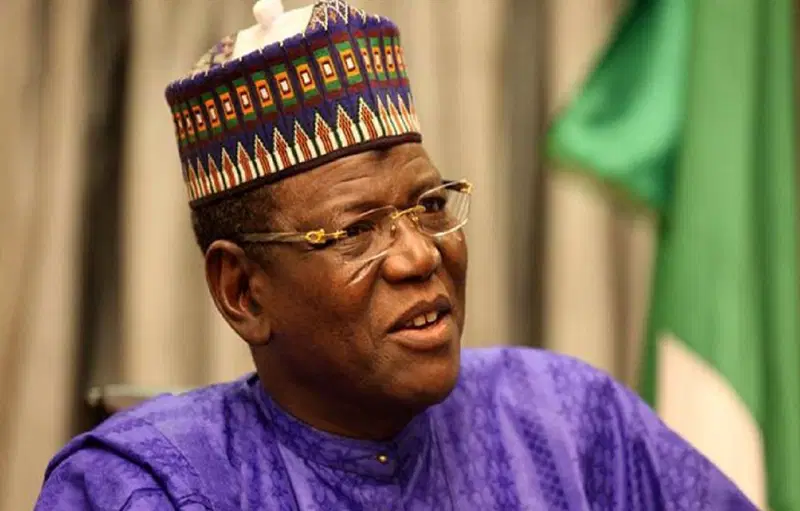Sule Lamido, a prominent figure in Nigerian politics, offers a compelling account of a pivotal moment in the nation’s history in his autobiography, “Being True to Myself.” This excerpt revolves around the 2007 presidential election, its perceived irregularities, and the subsequent actions of the late President Umaru Musa Yar’Adua. Lamido’s narrative provides a unique insider perspective on the dynamics between Yar’Adua and other key players, including former President Olusegun Obasanjo and then Chief Justice of Nigeria, Katsina-Alu. The incident highlights Yar’Adua’s unwavering commitment to acknowledging the flaws in the electoral process, even when it meant challenging the legitimacy of his own victory.
The setting for this crucial interaction was the first National Council of State meeting chaired by President Yar’Adua. This council, composed of the President, Vice President, state Governors, former Heads of State, and current and former Chief Justices of the Federation, serves as a vital advisory body on matters of national importance. Yar’Adua’s decision to address electoral reform in his first meeting with the council signaled his intention to prioritize this critical issue. However, the language he chose to use in his memo to the council proved to be unexpectedly controversial. The memo’s preamble, which stated that the reforms were necessary “in view of the large-scale irregularities in the conduct of the last elections,” directly implicated the very election that had brought Yar’Adua to power.
Lamido, sensing the potential repercussions of such a statement, took it upon himself to advise Yar’Adua to reconsider his wording. He urged the President to replace the phrase “large-scale irregularities” with a more neutral expression like “the desire to reform our electoral system.” Lamido’s concern stemmed from the belief that by acknowledging the irregularities, Yar’Adua was effectively undermining his own mandate. Furthermore, he pointed out the awkward position this would create for other members of the Council, particularly Obasanjo, who oversaw the election, and Katsina-Alu, who played a decisive role in upholding Yar’Adua’s victory in the Supreme Court.
Despite Lamido’s repeated attempts to persuade him, Yar’Adua remained steadfast in his decision to present the memo as it was. He refused to alter the language, even after Lamido explicitly highlighted the potential implications for his own legitimacy and the discomfort it would cause Obasanjo and Katsina-Alu. Yar’Adua’s unwavering stance left Lamido bewildered and confused. He couldn’t comprehend why the President would willingly cast doubt on his own electoral victory, especially in front of those who had played significant roles in ensuring his ascension to power.
During the council meeting, the tension in the room was palpable as Yar’Adua read the memo, explicitly referring to his own election as “massively irregular.” Lamido observed the reactions of Obasanjo and Katsina-Alu, noting their apparent shock and bewilderment. In contrast, Yar’Adua remained seemingly unconcerned by the implications of his statement and the atmosphere it had created. He remained impassive, seemingly indifferent to the discomfort of his colleagues. This public acknowledgment of the flawed electoral process was a bold move, especially considering the political climate and the potential ramifications for his presidency.
Lamido speculates that this incident, with its open admission of electoral irregularities, could have been a significant factor in the subsequent strained relationship between Yar’Adua and Obasanjo. The public declaration of a flawed election process undoubtedly challenged Obasanjo’s legacy and may have been perceived as a direct criticism of his administration’s handling of the 2007 elections. This event, as recounted by Lamido, offers a glimpse into Yar’Adua’s character, revealing a leader willing to prioritize integrity and transparency, even when it meant questioning his own path to power. It also highlights the complex political landscape of Nigeria at the time and the delicate balance of power between key figures like Obasanjo, Yar’Adua, and Katsina-Alu. The incident serves as a reminder of the fragility of democratic processes and the importance of continuous electoral reform.














